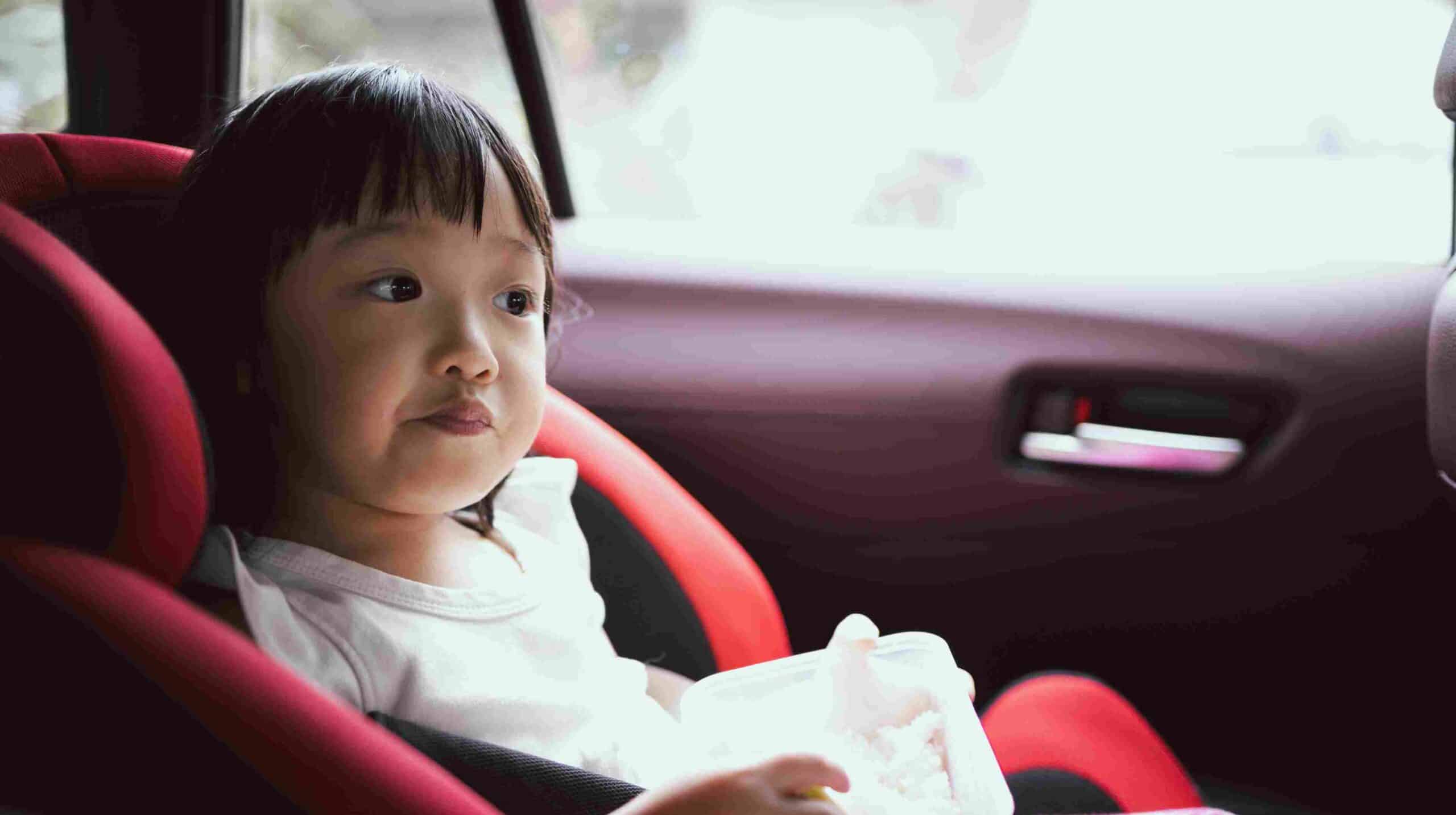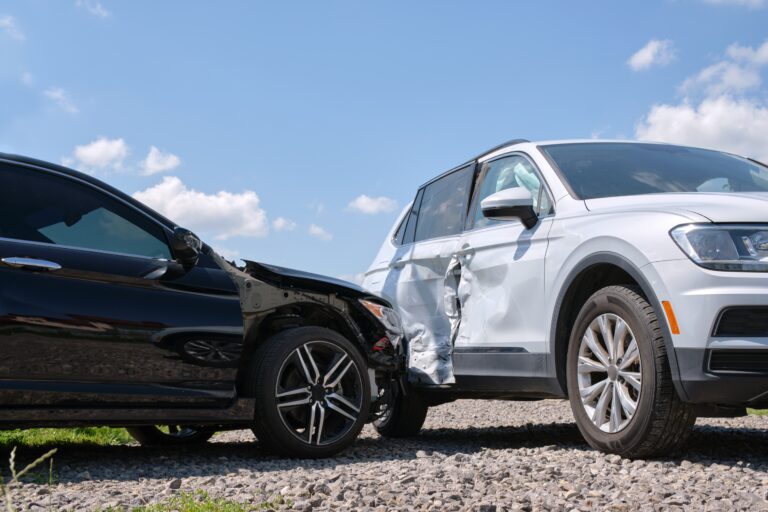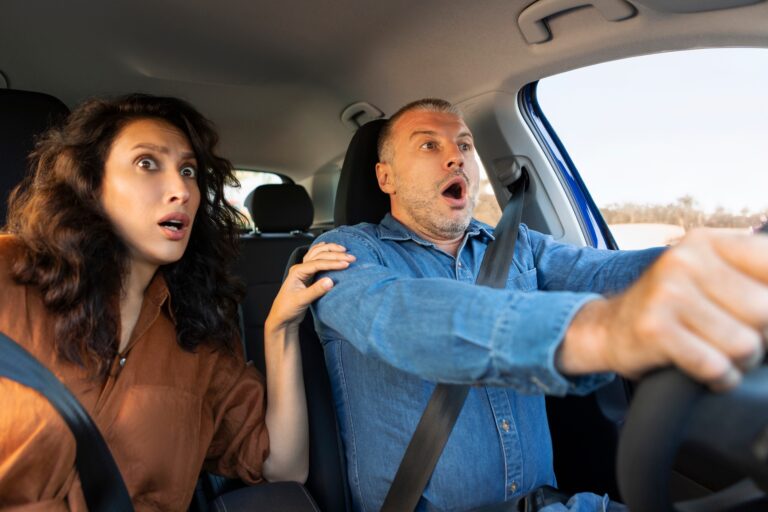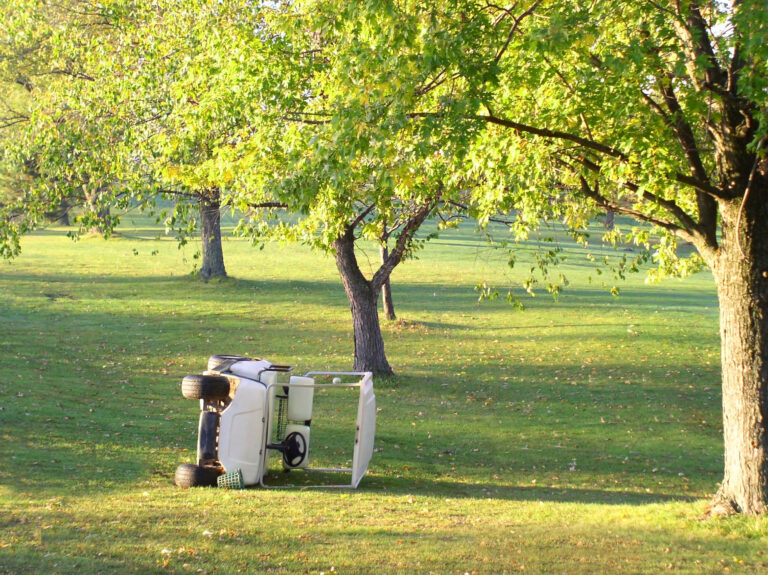Even when used properly, child car seats do not eliminate all risk. As auto accident attorneys in Richmond, VA, we have witnessed far too many preventable injuries resulting from defective car seats, improper installations, and negligence by other drivers.
Understanding Virginia’s car seat laws and how to respond after a crash can protect your child’s health—and your family’s future.
When Safety Measures Fall Short
We all rely on child car seats to protect our most vulnerable passengers. They are required by law, supported by science, and advertised as life-saving. Yet despite these safeguards, child car seat injuries still happen—and when they do, the consequences can be devastating.
At The Johnson Injury Firm, we represent families across Richmond who are reeling from injuries their children suffered in car accidents. Many of these families were doing everything right—using the correct seat, following Virginia’s car seat laws, driving cautiously—and still, tragedy struck.
In these cases, it’s not about blame. It’s about getting answers, accountability, and the financial support your child will need for recovery.
Common Types of Child Car Seat Injuries
Child car seat injuries range in severity depending on the nature of the crash, the design of the seat, and how it was installed or used. Some of the most common injuries we see as child car seat injury lawyers in Richmond include:
- Head and Brain Injuries: Improper head support, defective seat padding, or forceful impacts can lead to concussions or traumatic brain injuries, especially in rear-end or rollover crashes.
- Spinal Injuries: High-velocity crashes can stress the spine even in a harnessed seat. Young children are especially vulnerable to spinal cord trauma due to their developing bones and ligaments.
- Chest and Abdominal Injuries: If the straps are too loose or improperly positioned, crash forces can cause damage to internal organs, ribs, or the sternum.
- Limb Injuries: Arms and legs are often exposed or not fully secured by harnesses, which can lead to fractures or dislocations.
- Cuts and Burns: Seatbelt hardware, broken glass, or exposed plastic can cause abrasions or burns on a child’s delicate skin.
When we investigate these injuries, our role as accident lawyers in Richmond is to determine what went wrong. Was the seat defective? Was it installed correctly? Did the crash happen because another driver acted negligently? These are the questions that shape your legal claim—and your ability to recover compensation.
Are Car Seat Injuries Always the Parent’s Fault?
Absolutely not. While some insurers or manufacturers may try to place blame on a parent for improper use, the reality is often far more complex. We have handled many cases where parents followed all instructions, yet their child was still hurt due to one or more of the following:
- Defective car seat design or manufacturing flaws
- Unclear or misleading installation instructions
- Recalled car seat models still on the market
- Negligence by another driver who caused the crash
- Seat ejection or failure during impact
As your auto accident attorney in Richmond, VA, we can consult with child safety experts to reconstruct the crash, inspect the car seat, and identify any potential product liability issues. You should never have to carry the burden of guilt when you did everything you could to protect your child.
Virginia’s Car Seat Laws: Know the Rules

Virginia has specific laws in place to protect children in motor vehicles. Parents who violate these laws may face fines—but more importantly, failure to follow them can affect the outcome of a personal injury claim.
Virginia Car Seat Laws (as of 2025):
- Rear-Facing Requirement: Children under age 2 must be secured in a rear-facing seat until they reach the seat manufacturer’s maximum weight or height limit.
- Forward-Facing with Harness: After outgrowing the rear-facing seat, children must be in a forward-facing seat with a harness for as long as possible.
- Booster Seats: Children ages 4–8 should use a booster seat until they reach 4’9” in height.
- Front Seat Restrictions: All child restraint systems must be placed in the back seat unless the vehicle does not have a back seat.
- Installation Standards: All car seats must be installed according to the manufacturer’s guidelines and properly secured using seatbelts or the LATCH system.
As a child car seat injury lawyer in Richmond, we often find that parents are unaware of recent updates or nuances in these rules. If you are unsure whether your child’s seat is compliant, we encourage you to visit a certified car seat inspection station or contact our office for guidance.
How Car Seat Defects Can Lead to Legal Action
Unfortunately, many car seat injuries stem not from misuse but from product defects. Some car seats on the market have been recalled due to:
- Buckles that stick or fail to latch
- Weak frames that crack under pressure
- Flammable materials
- Faulty release mechanisms
- Shoulder harnesses that detach
If your child was injured due to a defective seat, you may have a product liability claim against the manufacturer or distributor. These cases can result in significant compensation, particularly when the injury is severe or permanent.
As your legal advocate, we will gather documentation of the product, check for recall notices, and pursue legal action against all liable parties. These are not just personal injury cases—they are also about public safety and holding corporations accountable.
Crash Scenarios That Increase Risk for Children
We have seen that certain types of car accidents are more likely to result in serious injuries for children, even when using a proper seat. These include:
- Side-impact collisions: Car seats are often tested for frontal impact, not side collisions. These crashes can cause significant head and limb injuries.
- Rollovers: In rollover accidents, seats may detach or flip, causing neck and spinal trauma.
- Rear-end crashes at high speed: These can cause whiplash or spinal cord damage even when using rear-facing seats.
- Vehicle intrusions: If the car is crushed or penetrated, the protective shell of the car seat may not offer sufficient safety.
In each case, it is our responsibility as your car accident lawyer in Richmond to reconstruct the incident, work with crash experts, and analyze what safety failures contributed to your child’s injury.
What to Do After a Child Is Injured in a Car Seat
If your child has been hurt in a crash, it is essential to act quickly to protect both their health and your legal rights.
Steps to take immediately following the accident:
- Get medical attention — Even if your child seems okay, some injuries are delayed or internal.
- Preserve the car seat — Do not throw it away or alter it. It may be key evidence.
- Document the scene — Take photos of the car seat, vehicle damage, and your child’s injuries.
- Get a crash report — Police reports often mention whether a child safety seat was in use.
- Consult with an attorney — Our team can evaluate your case and preserve critical evidence.
We understand that this is an emotionally overwhelming time. Let us handle the legal and investigative burden so you can focus on your child’s recovery.
How We Can Help as Your Child Car Seat Injury Lawyer in Richmond
Our firm has extensive experience helping families whose children were injured despite their best efforts to protect them. We offer:
- Thorough investigation of product defects and third-party negligence
- Access to child safety experts to testify on your behalf
- Guidance through Virginia’s legal system for injury and product liability claims
- Negotiation or litigation against negligent drivers or manufacturers
- Compassionate representation focused on your child’s long-term needs
We also know how to counter the arguments insurers and manufacturers often make to shift blame or reduce payouts. Your child’s future is not up for negotiation—and we will not let corporate interests minimize your family’s trauma.
Potential Compensation in Child Car Seat Injury Cases
Compensation in child injury cases can be significant, especially if your child suffers permanent harm. Depending on the circumstances, we may pursue:
- Medical expenses (past and future)
- Rehabilitation and therapy
- Pain and suffering
- Loss of quality of life
- Parental emotional distress
- Punitive damages (in cases of gross negligence or defective products)
As your accident lawyer in Richmond, we tailor each claim to the unique needs of your family. We want to ensure that your child has access to everything they need—now and into the future.
Why You Need an Attorney for These Cases
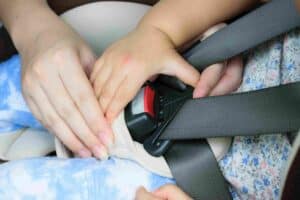
Car seat injury claims are among the most complex types of auto accident cases. Between product liability issues, evolving car seat laws in Virginia, and emotionally charged injuries to children, these cases require special care.
By working with an experienced auto accident attorney in Richmond, VA, you can level the playing field against insurance companies and manufacturers. We know how to tell your child’s story and secure the support your family deserves.
FAQ: Child Car Seat Injuries in Virginia
What if I installed the car seat wrong? Can I still recover damages?
Yes. While installation errors may impact your case, they do not automatically disqualify you from compensation. Other factors, like a defective product or another driver’s fault, may still entitle you to financial recovery.
Can I sue a car seat manufacturer in the state of Virginia?
Yes. If your child was injured due to a defective car seat—whether from poor design, manufacturing flaws, or lack of proper warnings—you may have a valid product liability claim.
What if the other driver caused the crash?
You may file a personal injury claim against the other driver. We will work to demonstrate how their negligence contributed to the crash and that your child was properly restrained.
Is it illegal to use an expired car seat in Virginia?
Virginia law does not explicitly prohibit the use of an expired car seat, but manufacturers strongly caution against it. Using an expired seat may also weaken your legal claim if an injury occurs.
What is the time limit to file a claim for a child car seat injury in Virginia?
In Virginia, personal injury claims must generally be filed within two years of the date of the injury. However, when a child is involved, the clock may be paused until the child reaches the age of 18. Speak with us as soon as possible to avoid losing your rights.
Call Us Today to Protect Your Child’s Future
If your child has been injured in a car seat during a crash, do not wait to seek legal help. Every day that passes makes it harder to preserve evidence, secure witnesses, or take action against a negligent driver or company.
At The Johnson Injury Firm, we are here to fight for your child like they were our own. Our Richmond car accident lawyers are committed to protecting families, holding wrongdoers accountable, and making our roads safer for every child.
Contact us now or online for a complimentary, compassionate consultation.


